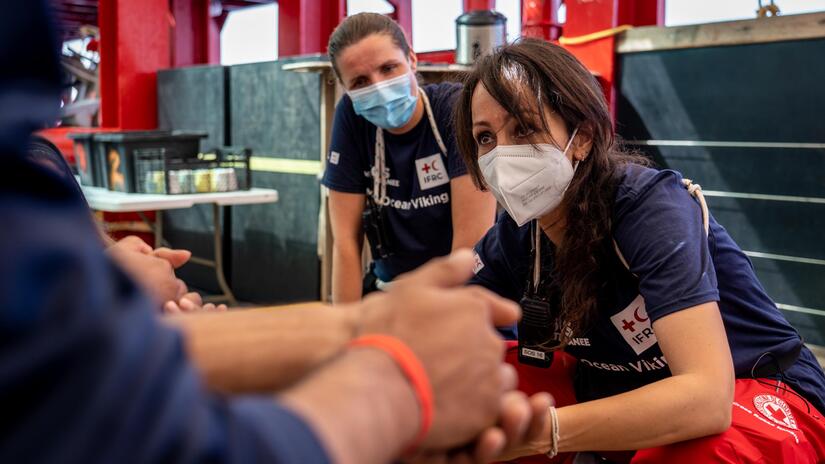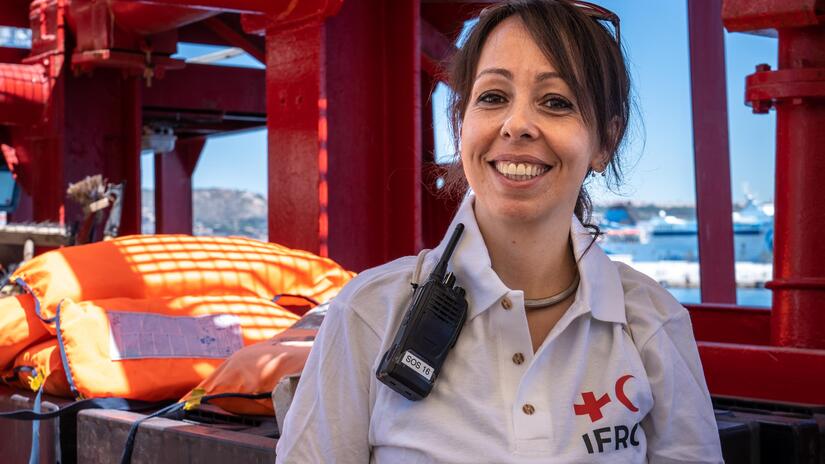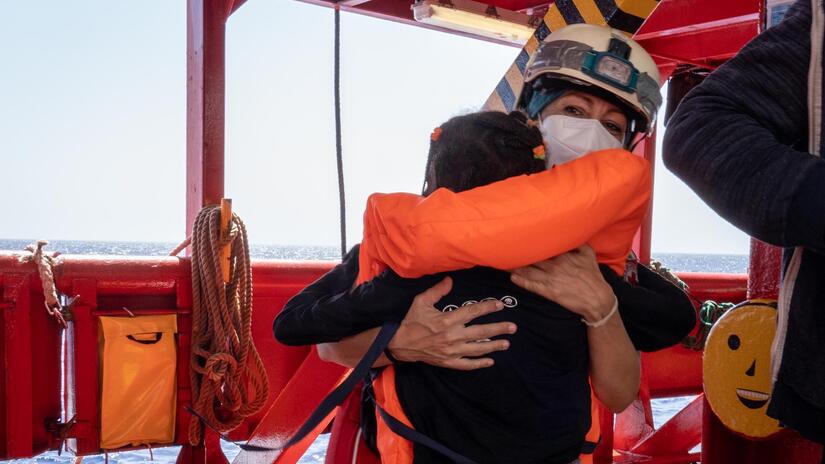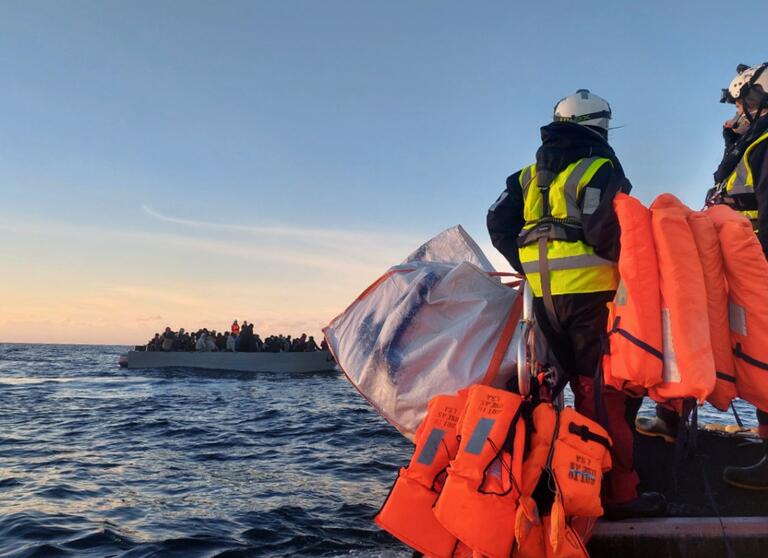When people step foot on board the Ocean Viking humanitarian rescue ship, their lives have been hanging by a thread.
As the IFRC's operations manager aboard the Ocean Viking, Sara Mancinelli's job is to ensure the distressed people receive the critical care and attention they need.
She gives a unique first-person glimpse into the daily life on this floating humanitarian service point at sea.
No one can forget
“I don’t think anyone can forget their first rescue on board the Ocean Viking. Actually, saving people’s lives, that is something that you don’t forget easily.
When spotting a boat in distress, you know what this means for the people on board. Sometimes they have been drifting at sea for days, without food, drinking water and life jackets. Most boats are overcrowded, and people have to hold on for their lives. They know that if they fall into the water, that will most probably be the end. And that every year, thousands of people drown during the same journey.
When the Ocean Viking picks people up in such circumstances, there is immense relief. Most people cry when they come on board the ship, or they kiss the floor and fall into our arms. Other people just get very, very quiet, knowing what they have just escaped. The first thing we always tell people is: ‘You are safe.'

Sara Mancinelli listens to the story of a recently rescued migrant aboard the Ocean Viking.
Photo: IFRC
The first friendly face in a long time
Most survivors who come on board the Ocean Viking have gone through a difficult time. Not only in their days at sea, but also before that. Some have experienced hardship in their country of origin, especially if they come from conflict-afflicted areas.
And they have gone through a dangerous journey to reach the shores of the Mediterranean. After a while on board, people start telling us about their journey. These are stories about human trafficking, blackmail, sexual violence, torture and sometimes even slavery. A lot of people tell us: ‘You are the first friendly face that I have seen in a long time.’
Being there for people
During their time on board, we do as much as possible to support people. First, we give them dry clothes and food and water. And we provide medical assistance, as many people got hurt during their journey or haven’t had access to medical care in months.
We make people as comfortable as possible. There is a shelter exclusively dedicated to women and children, and one for men. And there is room to relax, talk, pray and heal.
And of course, we provide psychosocial support. We see that this is much needed, for adults and children. Some minors travel without their parents, some travel with family members that are extremely traumatized. We comfort them as much as possible by playing games and providing colors and toys.

IFRC Operations Manager Sara Mancinelli aboard the Ocean Viking humanitarian rescue ship.
Photo: IFRC
Long journey ahead
During their time on board, most survivors start to realize that their journey is not over. When they arrive to Europe, new challenges lie ahead. We try to prepare survivors for this. We provide information about what to expect when they come to shore, and where to find help. If people have specific needs, for example if they need protection or medical care, we refer them to experts and authorities on land for a follow-up.
For migrants who get rescued at sea, their time at the Ocean Viking is only a small part of a long and difficult journey. But it is a journey in which people are often not seen as human beings, treated as a problem, a number, or even as a criminal. So for just these few days, we are doing everything we can to make sure people feel safe, heard, and seen. Because in the end, we are all human.”





